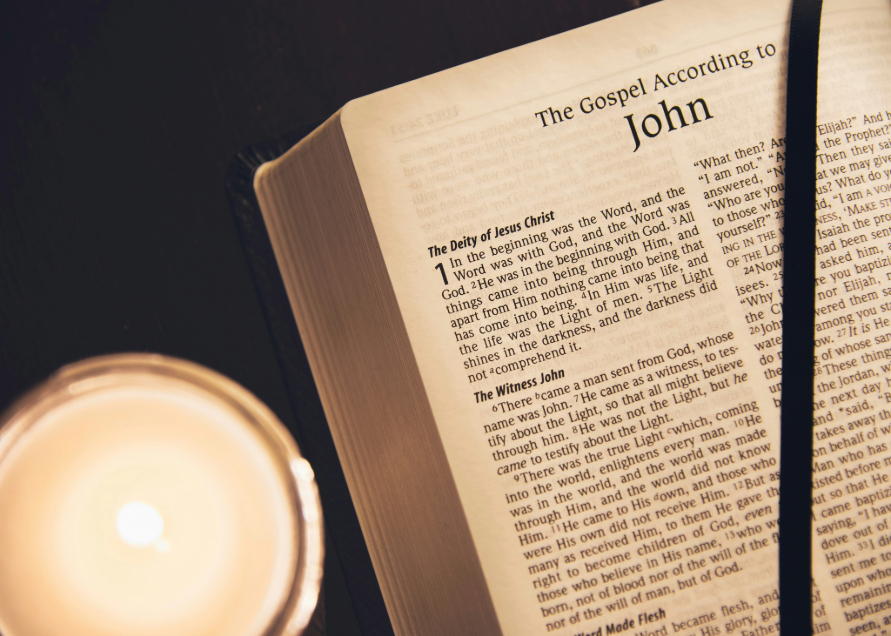Jim Cymbala, author of Fresh Wind, Fresh Fire, once said, “The great battle of our spiritual lives is ‘Will you believe?’ It is not, ‘Will you try harder?’ or ‘Can you make yourself worthy?’ It is squarely a matter of believing that God will do what only he can do.”
I think James had this principle in mind when he was writing the conclusion of his book:
Is anyone among you suffering? Let him pray. Is anyone cheerful? Let him sing praise. Is anyone among you sick? Let him call for the elders of the church, and let them pray over him, anointing him with oil in the name of the Lord. And the prayer of faith will save the one who is sick, and the Lord will raise him up. And if he has committed sins, he will be forgiven. Therefore, confess your sins to one another and pray for one another, that you may be healed. The prayer of a righteous person has great power as it is working. (5:13–16 ESV)
The phrase “prayer of faith” is only used this one time in the Bible. Some people think it means that the prayer of faith is one characterized by incredible certainty—the one praying has no doubts that God is going to give them what they’re asking. In other words, they’re demanding something from God.
This proves to be a horrible way to pray, because if the healing doesn’t come, the only explanation is that the praying person’s faith is deficient. So now, in addition to needing healing, there’s judgment heaped upon the validity of their faith.
Similarly, many think that the prayer of faith means to slip into some kind of command mode: “I rebuke this sickness in Jesus’ name and command it to leave your body!” Many people who say they have the ministry of prayer and healing don’t really talk to God at all—they talk to the person or to the sickness. And while it’s true that Jesus and some of the apostles sometimes did it that way, the New Testament never tells us to replicate that kind of thing. Plus, James here is referring to prayer, which means talking to God.
It’s also important to note that the prayer of faith is by no means a guarantee that God will heal. Some use verse 15, “the prayer of faith will save the one who is sick,” as a divine promise that if we pray right, the healing will come. But it can’t mean that. Here’s how we know:
In 1 Timothy, Paul said he had to leave one of his most trusted companions, Trophimus, in Miletus, recovering from sickness. In the same letter, he recommended that Timothy take some medicine to treat his illness. Paul didn’t just tell Timothy to pray in faith. He didn’t say, “Ugh, Trophimus, still not believing. He needs to pray a little harder to get healed.”
And then there’s Paul himself! We know that he prayed earnestly for healing from his own physical afflictions repeatedly—and was turned down.
Tim Keller offered some insight into why God would deny such seemingly good requests:
If God came to you tonight and said, “I want you to know that from now on, anything you ask for sincerely, with good motives, in complete faith, I will give it to you without condition”—if God actually said that to you, if you have any brains in your head at all, you would stop praying immediately and never pray again. And your friends, if they had brains in their head, would come to you and say, “Please never pray for me again.” Why? How many times have you sincerely sought after something you felt sure was good for you, only to find out later it was quite destructive?
As we move through life, there are often moments where we look back and thank God for not answering those prayers that once seemed so precious to us. (Thank you, Garth Brooks.)
James writes about the “prayer of faith,” not as a guarantee, but because God often does grant healing in response to our prayers. Those who do not believe, do not ask. Those who do believe, do ask.
But there’s another element at play here. If you look at the wording of James 5:15, you’ll see that James uses the Greek word for saved (sozei) which is usually used for salvation, and in verse 16, he says we’ll be healed of our sins.
The sick person is saved, but the sinner is healed. Ordinarily, we would think of it the other way around, but James is pointing out the deep connection between sickness and sin.
Ultimately, the reason we get sick is because of the curse of sin—not necessarily because of a sin we’ve committed, but because of the sin that brought sickness to the earth. It was part of the curse. And much more important than healing from our temporary sickness is finding ultimate healing in salvation. More important than our bodies being healed is our souls being saved, and if God uses sickness to bring salvation to our souls, that’s an even more full experience of healing.
In the end, the prayer of faith is simple: It’s a request for healing. Either healing in this life or the life to come. Either physical healing or God’s spiritual healing—which is completely up to him to decide.
I like how Jen Wilkin puts it: “The prayer of faith is a faith not in a particular outcome, but in the God of all outcomes.” The prayer of faith asks boldly for God to do what he’s fully able to do, knowing that he’s real and he’s good, while also holding space for all of our questions and doubts about the outcome.


